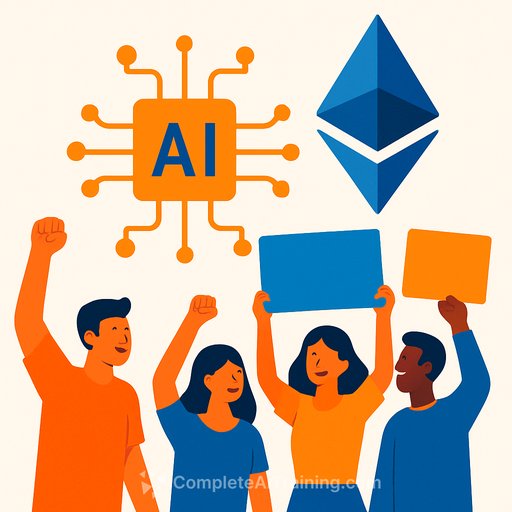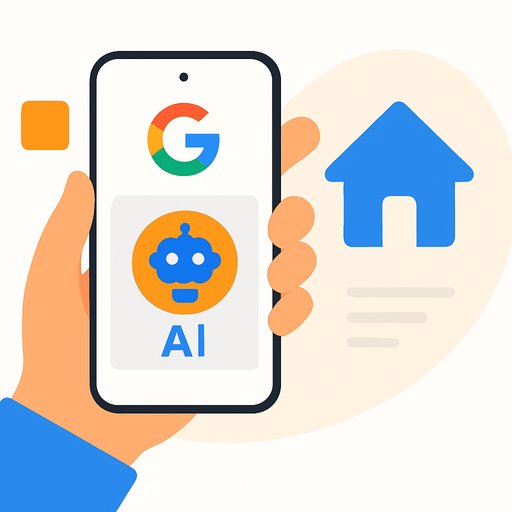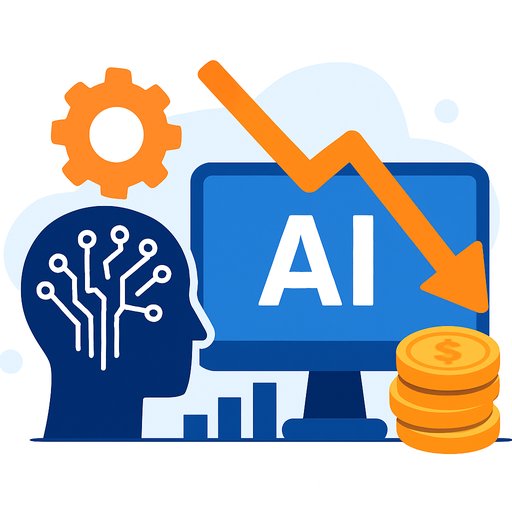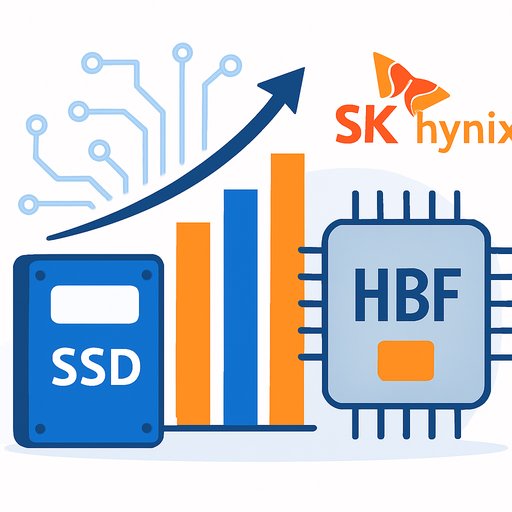Ethereum's New AI Team: What Product Leaders Need To Know
Ethereum has created a new AI team led by Davide Crapis. It wasn't on the roadmap. It emerged because projects across the ecosystem asked for it. As Crapis put it, "Our ecosystem needs this."
The team sits across protocol and ecosystem work. The goal: build useful products and make it easier for traditional AI developers to ship on Ethereum with alignment, verification, and governance in mind.
Why now
AI agents on-chain have matured over the last two years. Teams are already using micropayments (often with stablecoins), onchain identity, and verification. The Foundation sees this as "another step" to support what builders are already doing, not a pivot.
Near-term focus: ERC-8004 and AI agents
The short-term roadmap centers on ERC-8004, a proposal for a trustless way to discover, choose, and interact with AI agents. Crapis co-authored it with MetaMask AI lead Marco De Rossi and OpenAI's Jordan Ellis, and it's getting early traction.
If you build product on Ethereum, track ERC standards closely. Start here: Ethereum EIPs.
What's being built first
- Micropayments rails for AI services (subscription, usage-based, pay-per-call), including stablecoin flows.
- Onchain identity and verification to prove who or what an agent is, and what it did.
- Agent discovery, selection, and interaction patterns that don't require trust in a single provider.
- Alignment and governance primitives: auditability, policy controls, and incentives for safe behavior.
Team and timeline
The initial team: Crapis, an AI product manager, and an AI researcher, working alongside protocol teams. A detailed roadmap with milestones is planned for later this year.
Is Ethereum late to AI?
No. Other protocols have experimented with AI-specific chains and agent rails since 2023. According to Crapis, the timing is right because the experiments are now concrete enough to support and scale.
What this means for product development
- Scope agent use cases that benefit from trustless execution: payments, custodial actions, data access, API brokering.
- Design for verifiability: log actions on-chain, sign agent outputs, and make state transitions auditable.
- Treat identity as a first-class feature: bind agents to attestations, keys, and revocation paths.
- Model costs early: gas for orchestration, storage for proofs, and off-chain inference economics.
- Plan governance: rate limits, human-in-the-loop gates for high-impact actions, and policy rollbacks.
- Prepare for multi-agent marketplaces: discovery, reputation, SLAs, and dispute resolution.
90-day playbook
- Run a feasibility sprint on one AI agent with onchain payments and signed outputs.
- Prototype ERC-8004-style discovery and selection flows, even if the standard is evolving.
- Add onchain identity to your agent: attestation + key management + revocation.
- Ship a limited beta with strict policy controls and transparent onchain logs.
- Assign a PM/Eng owner to track relevant EIPs and align your roadmap.
- Level up the team on AI + web3 fundamentals. See role-based training: AI courses by job.
Key quotes
"Our ecosystem needs this."
"If we can show these traditional AI developers that there is value here-decentralization can solve problems around alignment, verification of AI, governance of AI-that would be a successful path for us."
"[ERC-8004] got a lot of traction very early. We feel that is something that can be very impactful already."
Bottom line
Ethereum's AI effort is demand-driven. Expect standards for agent discovery, identity, and verifiable behavior to harden. If you lead product, pilot an agent with onchain payments and verifiable outputs now, and design for trustless coordination from day one.
Your membership also unlocks:






